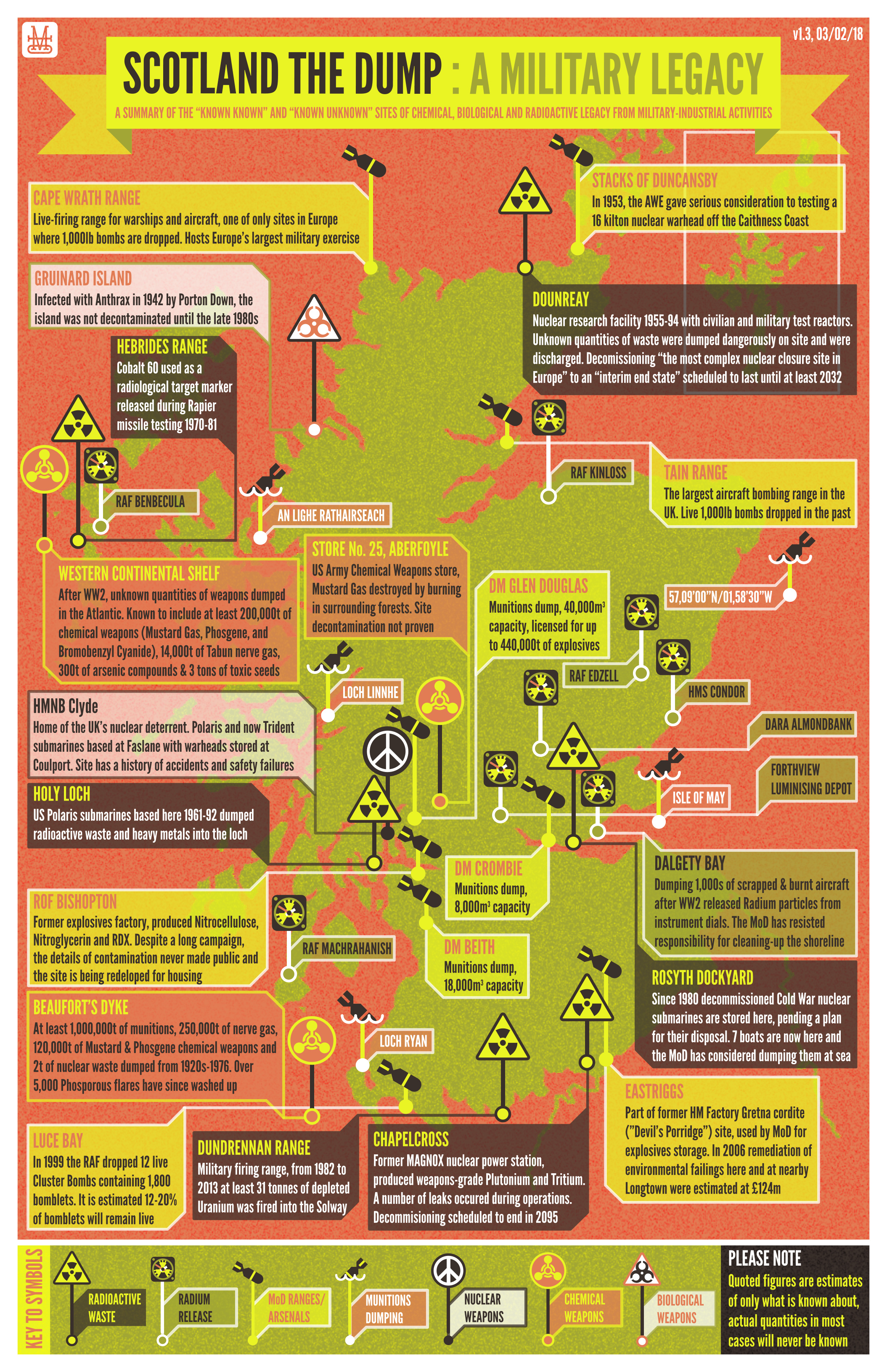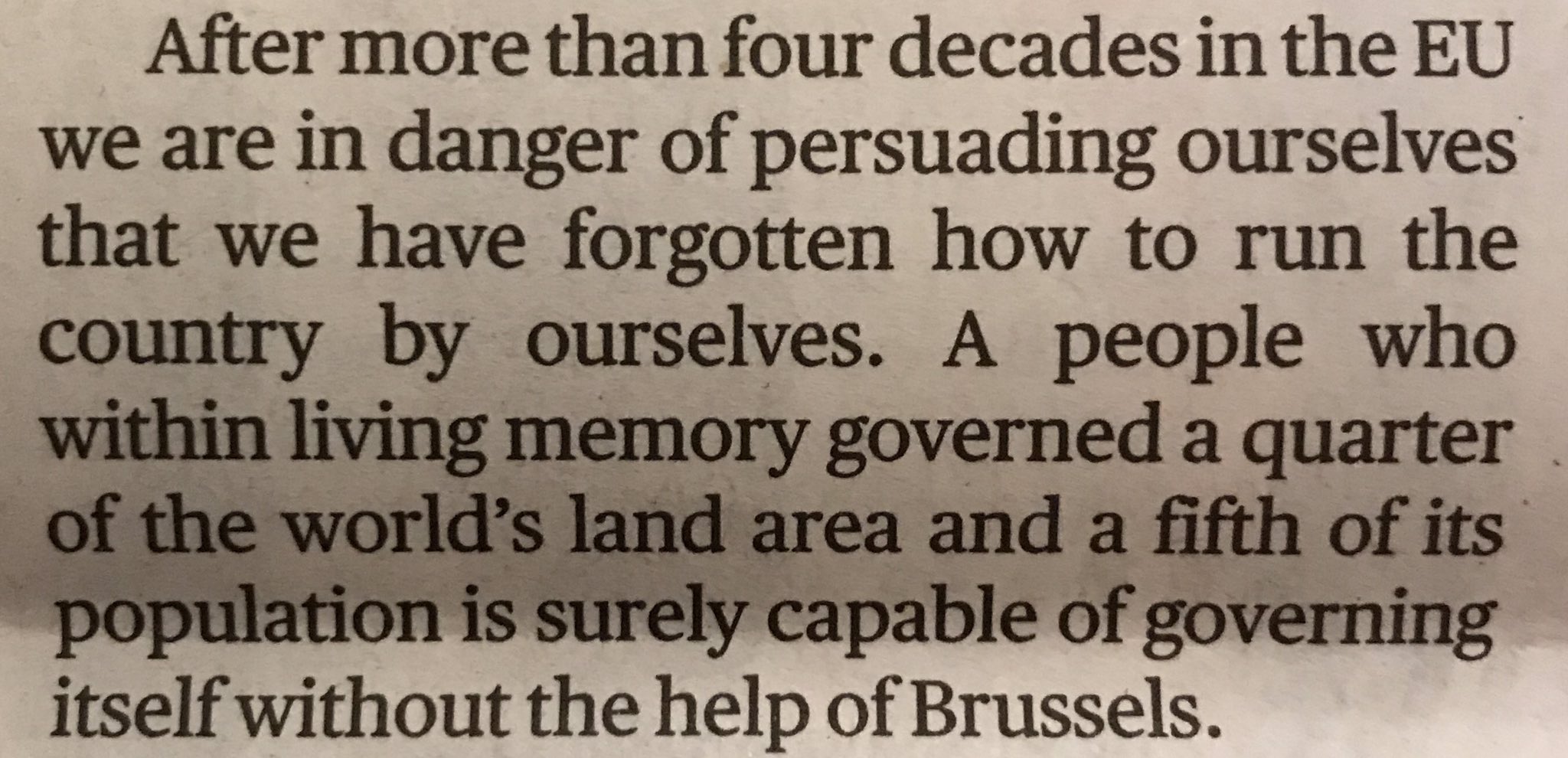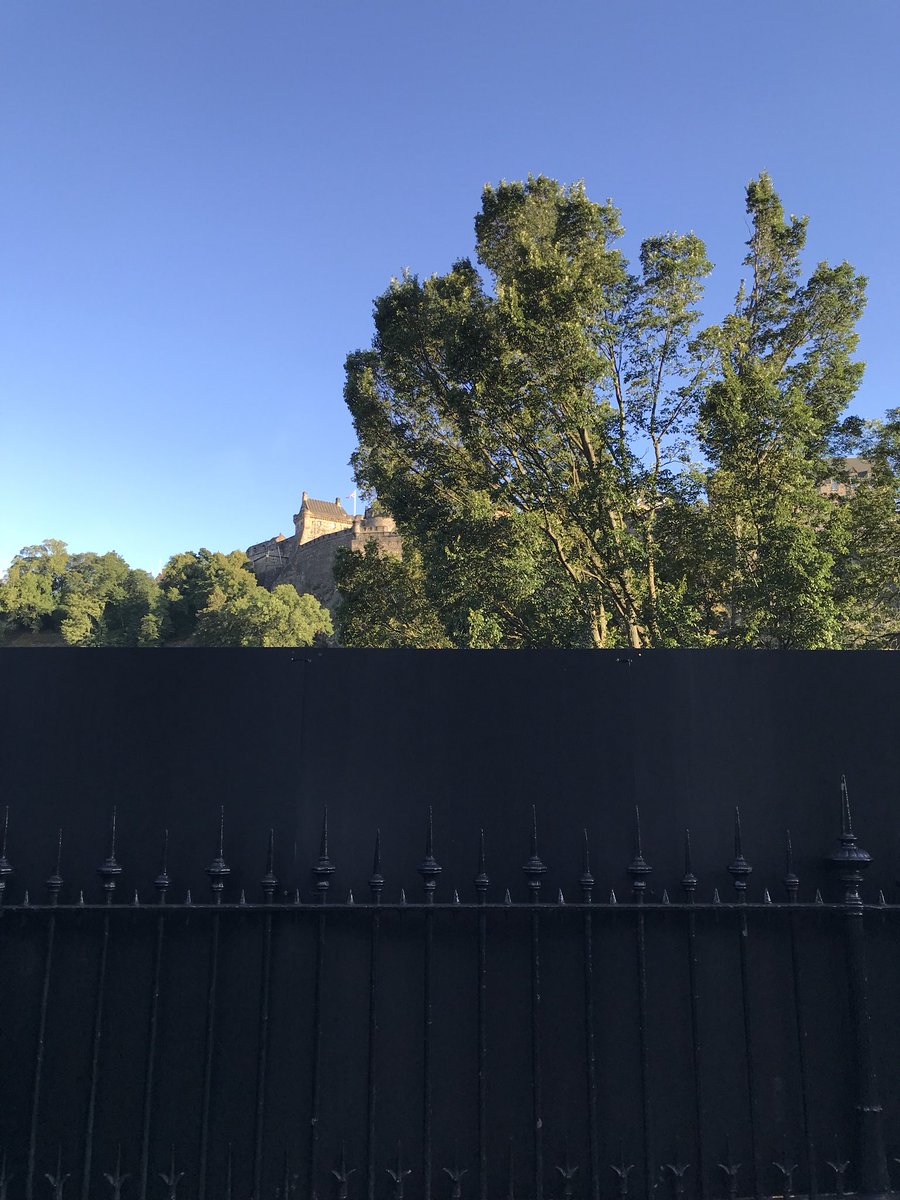Review of 2018: the Year of Imperial Fantasy


I think this is what they used to call “pooling and sharing”.
If the Ferret and our own maps neatly bookend the year, what else has been going on?
I think we can all agree that the entire nature of global reality can be judged by the tone of the latest Marvel film, and given the Infinity Wars consummate darkness, dissolving half of the universe and killing Spider Man, we can safely say that the year just passed was: bleak. “I don’t feel so good” could be a five word review of the year.
It was a year dominated entirely by England’s Brexit disaster movie, an exercise in national humiliation into which Scotland has been dragged with merciless incompetence.
Way back at the beginning of the year Gary Younge wrote: “Once again, Britain has overplayed its hand. Preferring to live in the past rather than learn from it, we find ourselves diminished in the present and clueless about the future.”
“…while the Brexit vote was certainly underpinned by a melancholic longing for a glorious past, the era it sought to relive was less the second world war than the longer, less distinguished or openly celebrated period of empire. For if memories of the war made some feel more defiant, recollections of empire made them deluded. Our colonial past, and the inability to come to terms with its demise, gave many the impression that we are far bigger, stronger and more influential than we really are.”


This new sect of Empire Loyalists may be disappointed, if, as seems increasingly likely, Brexit means the end of the Union. Imagine being liberated and eviscerated at the same time?
Remembering the now ex-editor of the Daily Mail’s plaintive headline (in huge, bold capital letters): WHO WILL SPEAK FOR ENGLAND? Anthony Barnett reminds us that Paul Dacre had written underneath: “Today the Mail asks a question of profound significance to our destiny as a sovereign nation and the fate of our children and grandchildren. Who will speak for England?’ The editorial continued over on an inside page. There, buried in a parenthesis he wrote: “and, of course, by “England”… we mean the whole of the United Kingdom”.
Of course.
The Daily Mail printed a separate Scottish edition.
Barnett has written:
“By England… we mean the whole of the United Kingdom”. This admission lies at the heart of Theresa May’s project for Brexit Britain. As her government seeks to pull the UK away from Europe and gain trade with the rest of the world to compensate, the Westminster state must impose unity at home, especially on the smaller nations. To make her Brexit work, the prime minister of England, for that is what she is, must discipline Scotland, Wales, Northern Ireland, as well as London and subordinate them to her will.”
This may be the intent, but it clearly isn’t working.
The Home Office’s December declaration that EU nationals will have to apply for their status to remain in the UK came as a shock to those still harbouring delusions of Britain as a place of internationalism, openness or decency.
The true nature of the British state is exposed in this process of decline and decay.
Brexit in Anthony Barnett’s words: “Think of it as the people living in the debris of their land, watching on their screens the new skyscrapers of London rise and shine. The debris is not poverty or lack of money but something intangible and inescapable: the end of Great Britain. They’d love to have it back but know they cannot and should not. Theresa May pitches them her Global Britain in its place, to feed their ambivalent desire. In doing so this most English of premiers, a vicar’s daughter from rural Oxfordshire, drives straight to the heart of the longing.”
This is about right. The English have been sold a vision that is meaningless, and displaced anger at their own elites with anger for ‘Eurocrats’ and a vague hatred of ‘Brussels’. Confused by their own impenetrable sense of decline and being drawn into the darker politics of blame and racism for that decline, Brexit becomes a straightjacket for English aspiration impossible to untie without junking the whole rotten hierarchy of celebrity feudalism, class riven inequality and moronic popular culture that holds the whole carcass together.
The long tail of Anglo-British Nationalism which erupted into consciousness in 2017 seemed to come out of nowhere. But the signs were visible for a long time.
A sense of national decline (‘forty years of hurt’), identity collapse, economic uncertainty, military ridicule and a political leadership unable to innovate have been around for decades bubbling away in a thousand morose editorials and fuming letter pages.
It’s a new form that is oddly restrained. There is of course no real movement for an English Parliament, nor other institutions. They no more wanted to ‘take back control’ than they believe in ‘sovereignty’. There is of course very good reason for this. There is no need and no motivation. So you have this odd beast of a new Nationalism that wants, instead of its own self-expression or self-determination, to restrain, possess and control others.
English nationalism doesn’t want England, it wants Britain.
This may become increasingly uncomfortable to the semi-trained Brit-Scots who defend the current arrangements faithfully and who cling to the wreckage not of Empire but of some sort of progressive Britain, we could all name them.
But some things have changed. The New Conservatives have little need for paternalism. The have shed any pretence of One Nation Conservatism and Cameron’s PR effort to detoxify the ‘Nasty Party’ label has been quietly shelved. Examples are everywhere. Michael Portillo’s claims that at least under capitalism “homeless people have shoes” was a quaintly fantastical low-bar.
But enough of the Brexit Cluster-Bourach. As Infinity Wars told us only half of the universe was dissolved, so as a glass half-full sort of guy lets move on.
Closer to home the issue of who runs the city of Edinburgh came to the fore. The emergence of a City for Tourists angered many people as a series of planning decisions seemed to accelerate the growing anger at the housing crisis, gentrification and displacement that’s at play not just in Edinburgh but in cities across the world.
I wrote back in August (“Artwash, Over-Tourism and Edinburgh”):
“Edinburgh is the growth-virus piggybacked on a cultural event. It is completely out of control. And that’s part of the mythology of the Fringe – “anyone can just pitch up and put a show on.” It started as a post-war cultural celebration based around high-art and controlled by a British elite, it morphed briefly into a more experimental cultural festival then it drowned in its own commercialism. It is an anarcho-capitalist spectacle masquerading as art and it’s destroying the city it inhabits.”
The response was predictable and hysterical, ranging from “how dare you” to “everything’s fine” but mostly centring around the assumption that tourism makes lots of money and making lots of money is good, and therefore any criticism of making money is generally taboo and off-limits.
Prediction for 2019: this issue is going to grow into a huge political issue.
Sheep, Salmon, Grouse
Another issue that reared into view was the twisted nexus of land, food and hunting. It began with the arrival of bizarre American huntress Larysa Switlyk, who came into focus after being sighted hunting sheep on Islay.
As we pointed out at the time: “Hunting is about class and power, not just bad Americans. Hunting is not some anathema to Scotland, something alien to ‘Scottish values’ – it is at the heart of our rural economy that uses the highlands as a play park and revels in its artificial wilderness.”
The spectacle of hunting may get the headlines but the issue only throws up deeper questions about land ownership, Scottish iconography and questions about how we farm salmon, why we have given over so much land to Grouse shooting and how our our environmental policies fail.
Prediction for 2019: land and food will become key issues as the Power grab kicks-in and Scotland’s poorly regulated food sector faces further crisis and revelations.
Talking of issues that aren’t going away any time soon, the multi-faceted environmental crisis and climate breakdown is the elephant in every room this New Year.
A study in Science Magazine in 2015 estimated that around 8m tonnes of plastic go into the sea each year.
That’s a truckload of plastic entering the ocean every minute.
Last year scientists on board the Greenpeace’s boat MV Beluga II skirted round Scotland’s coast collecting data on the concentration of plastic and micro-plastics in the sea. It’s the first and possibly the only such research of its kind. The results are devastating. Almost two-thirds of Scottish waters were found to contain micro-plastic pollution. Watch our film on the issue here.
The responses seem inadequate at best.
Greenpeace urged beach clean-ups. The Scottish Government announced in September it will introduce a Deposit and Return Scheme for drinks packaging.
Detailed proposals for a Scottish system are being worked up by Zero Waste Scotland. But that’s the same body that was implicated in the appalling scheme to rip up half the kelp beds on the west coast of Scotland. We can’t do joined-up thinking it seems, and most of our deep-seated environmental problems are implicated with our systems of endless production and consumption. Resolve that or nothing.
Our ability to think beyond those failing systems – whether that be an obsessions with a fossil fuel economy, adherence to growth as a model, or accepting British rule as an inevitability will be the test of our survival.
As Gavin Williamson looks into new opportunities for the armed forces and described leaving the EU as ”our biggest moment as a nation since the end of the Second World War”. As the defence secretary outlines Britain’s future is to become a “true global player” after Brexit by opening new military bases in the Caribbean and Far East, it’s time to leave this dystopian future once and for all and carve out a new vision of who we are and what kind of society we want to build.
Given the latest bout of imperial fantasy the choice seems easier than ever.
Happy New Year.


I can think of two places to store their rubbish. The first is obvious,tie them up along the embankment next to Wastemonster’s Cafe and the second would be, given the unshakeable loyalty to Wastemonster of the Orange Order then there is plenty of room in the old dry dock at Harlands & Wlofe ‘Titanic’ shipyard in Belfast to store all their rubbish. Incidentally there is plenty of space in the Naval Dockyards along the south coast.
Plastics is a really important environmental issue. And has become widely recognised as such by government, citizens and industry in the last two or three years. Remarkably so.
But the environmental issue that will destroy us in the next 30 years is the change in climate due to CO2 emissions. The IPCC published a Special Report in October 2018 investigating the different outcomes that can be expected if global temperature rise is limited to 1.5ᵒC, compared to 2ᵒC. Their findings add up to one clear, over-riding message that confronts humanity with the most important decision it will ever make: act now and deliver massive emission reductions over the next decade or face climate breakdown.
Prediction for 2019: There will be a huge increase in direct action on climate change issues, particularly by young people.
Hi Jenny – yes of course: https://bellacaledonia.org.uk/2018/10/12/the-end-of-the-myth-of-green-capitalism/
They were planning to bury nuclear waste from Sellafield in the Galloway hills in the1980s until stopped by Willie Macrae (deputy leader of the SNP) successfully leading the Mulwharchar planning enquiry. Macrae was researching the nuclear industry in Scotland and anounced to friends the night before his untimely death at Easter 1985 that he was on to something big when he inexplicably committed suicide on his way to his weekend holiday cottage near Oban. He was about twenty minutes away from his destination when he apparently decided to drive off the road and shoot himself, according to the coroner. The suspicions that he was assassinated have never gone away. Recently a nurse who treated him and discovered the gunshot wounds, came forwards to say that they were at the back of the head, not above the right ear, as stated in the police report. He knew he was being shadowed by Special Branch. It was recently revealed that in 1987 MI6 had a plan to assassinate Charles Haughey but could not find willing agents in Northern Ireland as cover.
Thanks MBC. Agreed – in fact the links and origins of the independence and the peace movements are deeply intertwined, from the Committee of 100 on. It would be good if one of the planned big demonstrations took place not in another city centre but at Faslane.
They apparently wanted test the first nuclear bombs in Caithness in the days before Dounreay. We were saved from that fate by the intervention of Norway, a fellow NATO member. The Norwegians were concerned about nuclear fall out on them. So they tested them in the Australian desert and the poor Aborgines had to suffer the fallout.
Good article, thank you.